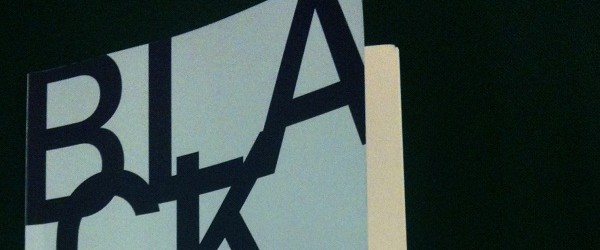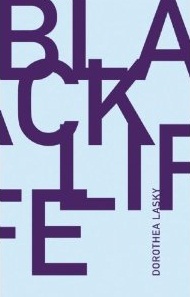
Poetry Review: Black Life by Dorothea Lasky
Books, ReviewsIt was hard forgetting to follow up on Lasky after my experience with her first book Awe. The explosion of my Coke can upon tearing the freshly received parcel from Wave Books containing Dorothea Lasky’s Black Life was not causally related. Although after digesting Lasky’s aforementioned second book of poetry, it may as well have been.
Black Life has a cover and typography that not only convey the urgent monotone with which Lasky speaks at her readings, but that also scream the chaotic texture of the poems on the inside. It’s a book about recovery and discovery, with a narrative that speaks of spiritual and artistic faith being lost and found after the death of Lasky’s father.
Beginning with “The Legend of Good John Henry”, Lasky shows us the circularity of memory, forgetting and faith that haunts the persona’s identity after reflecting on her father’s Alzheimer’s and death. This intensifies with the desperation of trying to understand how to deal with loss as the persona takes a dissociated, celestial perch in “Poem to an Unnameable Man” and continues the struggle in the prescriptive, contradictory poem “How to survive in this world”. However, from the initial and defiant self-referential poetry in “Jakob” that declares the inadequacy of language to express the intensity of pain, Lasky’s poems begin to find resolve in artistic and spiritual faith as the book progresses. The conscious and psychogenic transform into the synchronous and spiritual in “The Animal” and “Memories”. This later finds itself changing in concrete defenses concerning the practice of poetry that are central to the persona’s renewed identity and faith: “Ever read a book called Awe?”, “The Poetry that is going to matter after you are dead”, and finally a shift to the real imbued with metaphysical knowledge in the final poem “Grave”.
If Lasky’s poems are not inspected closely or reflected upon for a lengthy time, the danger is that they may be dismissed as self-indulgent, overtly confessional and hysterical. However, what is most enjoyable about Lasky’s poetry is the fact that she makes every effort to craft her poems in a way that enables the reader not only to experience the persona’s progress, insecurity and vulnerability, but the reluctance to express this insecurity, vulnerability and the hesitation to be it. Through confused syntax and repetition of words that serve as clues for emotional memory, which chart the persona’s progress and give the reader a map of ascent, Lasky shows how difficult the idea of acceptance is; she shows the reader the experience of dualities inherent in the human condition.
From my perspective of being someone alive in 2012, surrounded by irony and a breakdown of meaning at most times, it is a relief to find poetry that still concerns itself with meaning and the difficult process of creating meaning in the present context. Black Life is proof that the role of poetry continues to be cathartic, important, that it can pack punch without being ironic, that it is o.k. to be serious.























